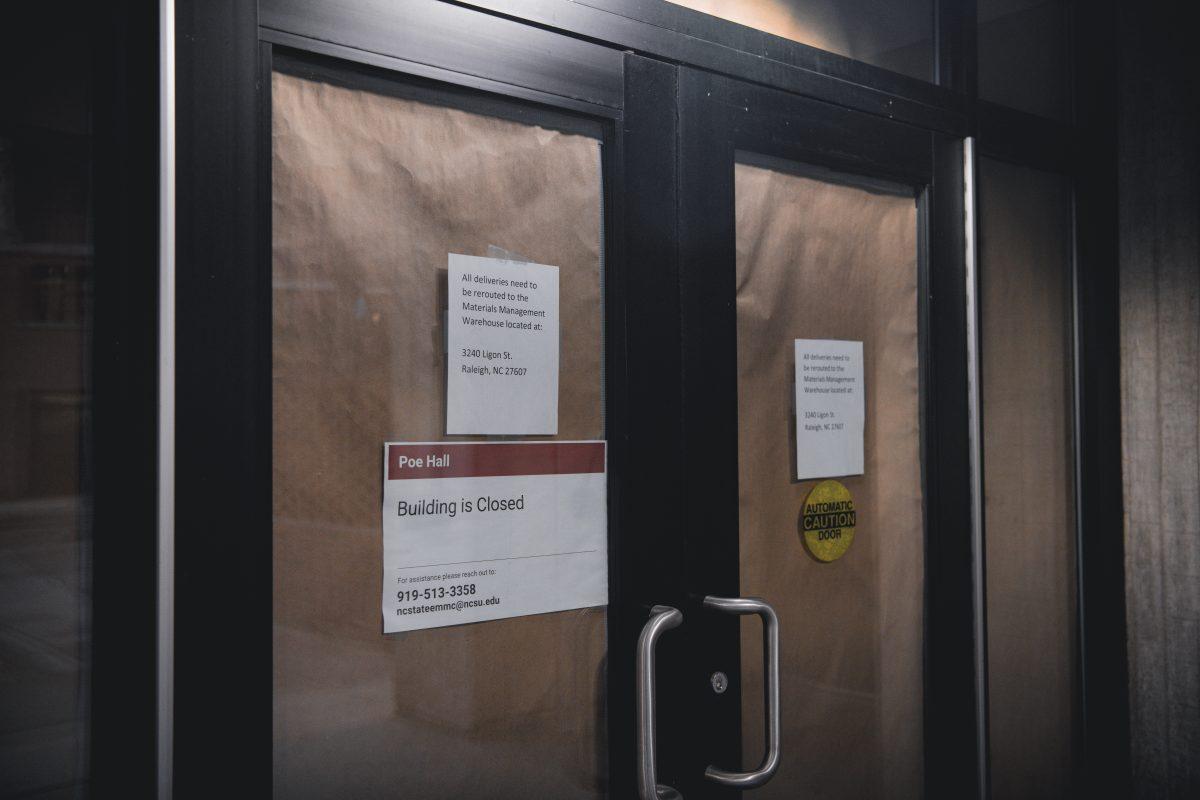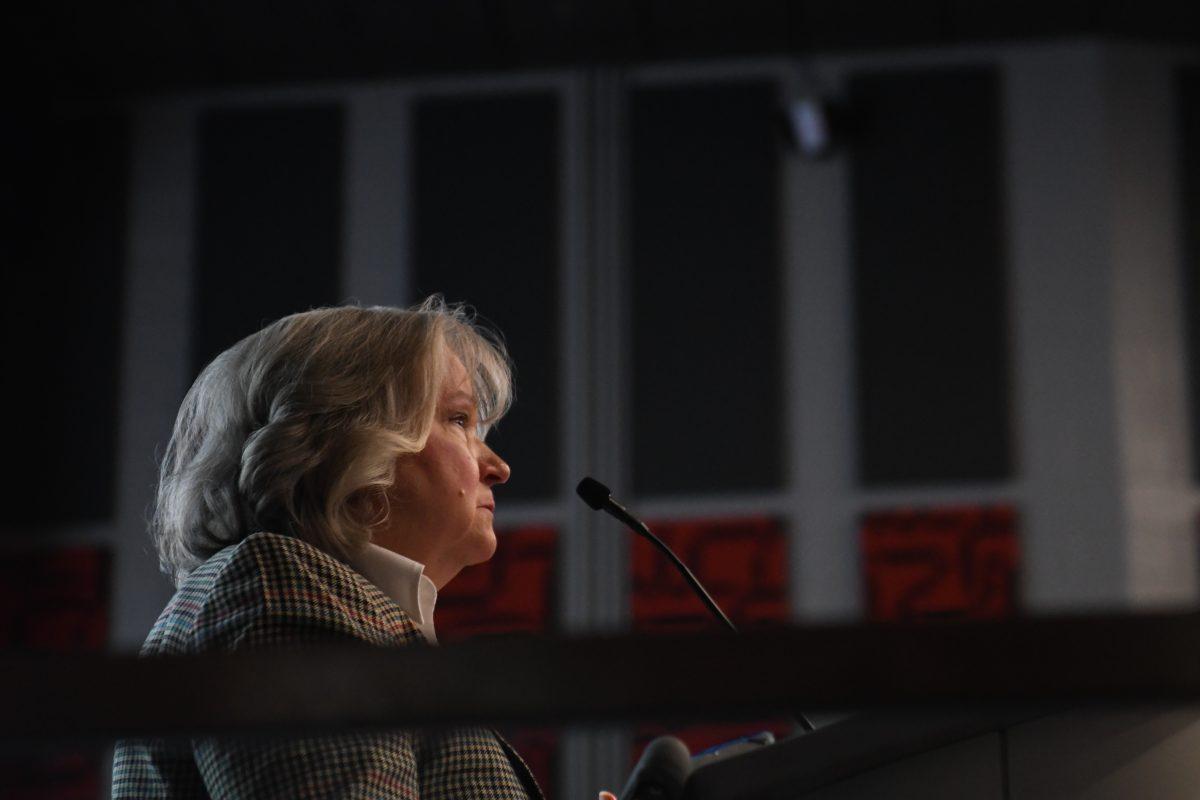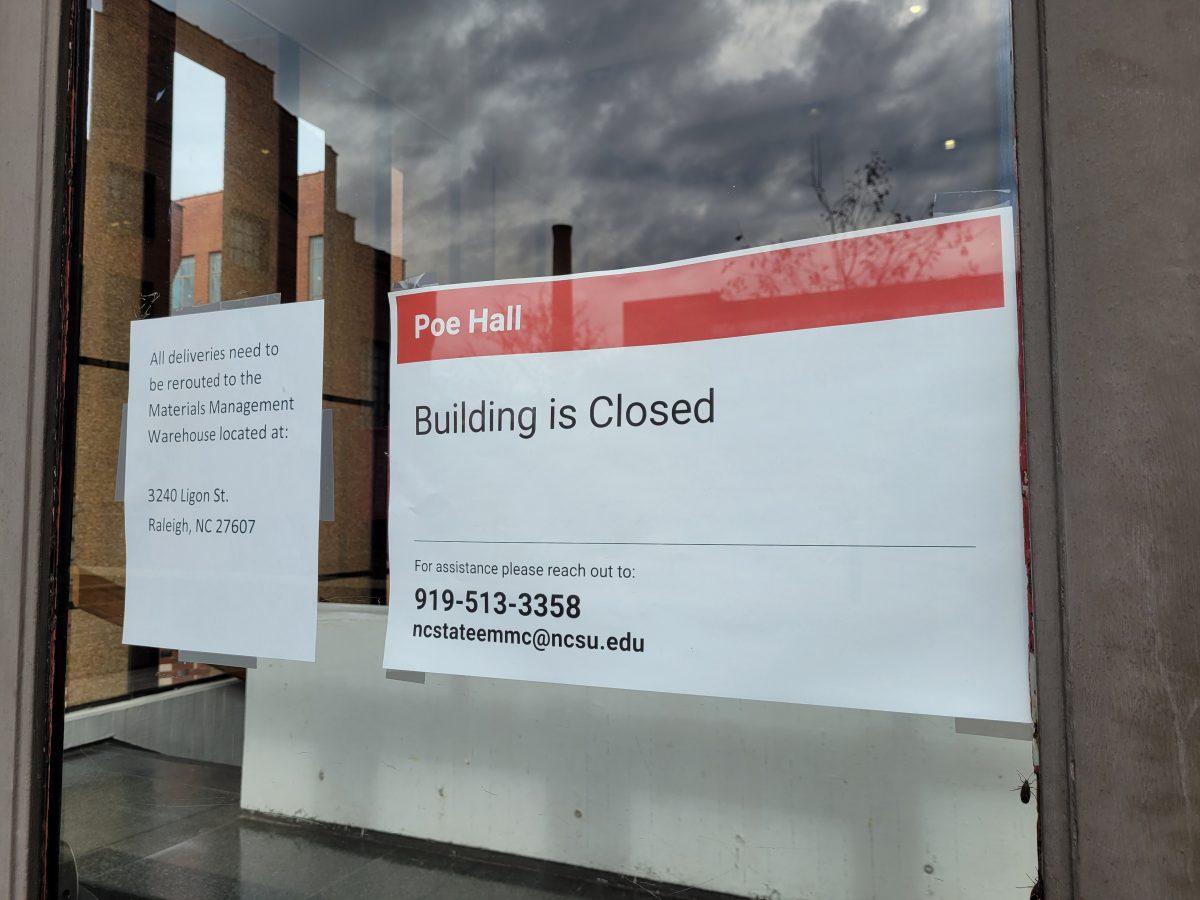Administration gave key updates on the progress of environmental testing in Poe Hall and responded to concerns that the University hasn’t prioritized people’s health at the Faculty Senate meeting Tuesday.
The University closed Poe Hall on Nov. 17, after environmental testing detected the presence of chemical contaminants called PCBs, which are linked to cancer. The environmental consulting firm NC State hired to test and assess the building has almost completed its first phase of testing, said Warwick Arden, executive vice chancellor and provost.
“Phase one essentially is air and surface testing throughout the building with the HVAC system turned off,” Arden said. “We’re expecting to have those results fairly soon, within the next week or so, and we’ll be reporting out.”
The next phase of testing, Arden said, is air and surface testing with the HVAC system turned on.
“This is not just to get a general overview of any contaminants that may be in the building and the impact of the HVAC system, it’s really to begin to get more specific results with respect to the specific areas in the building that may be affected,” Arden said. “We’ve got to see if it’s homogenous throughout the building.”
These updates come after a period of silence about the status of environmental testing from the University. It shared its last update Jan. 8.
“I know sometimes when there’s a gap in new information it’s easy to assume that we’re just sitting on things,” Arden said. “That is not the case.”
Arden said at the Jan. 8 University Council meeting that NC State anticipated receiving Poe Hall updates the following week. But the University has yet to fulfill Technician’s public records request for those updates. WRAL reported it filed 10 public records requests on Poe Hall with NC State, and the University has only fulfilled four.
Candy Beal, associate professor emerita in the Teacher Education and Learning Sciences department, said people with health concerns feel ignored, and Herle McGowan, chair of the faculty and teaching professor in the Department of Statistics, said she thinks there’s a sense that the University is focusing more on operational continuity rather than health concerns.
Arden said the reason the University closed Poe Hall was to be mindful of inhabitants’ health.
“I think we acted very, very quickly, and we’re trying to be very transparent about it,” Arden said. “I do want folks to really understand that the health concerns of our faculty, staff, the students are paramount to this. That’s why we’re trying to pursue this in a very thorough and detailed, methodic way.”
WRAL reported 40 cases of cancer in people who inhabited Poe Hall and that NC State withdrew its request for a Health Hazard Evaluation of the building by the National Institute of Occupational Health and Safety in January. Arden said this report is “sensationalistic and, in many places, simply incorrect.”
“What I can tell you is, we have never refused to cooperate with a federal investigation or federal requirements, and we have never asked for any case to be closed by NIOSH and anybody else,” Arden said. “In fact, we’re working closely with the EPA, with NIOSH, with the State Department of Labor.”
WRAL told Technician that NC State has not asked WRAL to make any changes or updates to its reporting published Monday.
Allison Newhart, vice chancellor and general counsel, said NC State’s work with NIOSH is paused until the University has more environmental testing results.
“The conversations with NIOSH continue to be productive as we need to have them, but right now, they’re taking a backseat to all the hard work we’re doing to understand the building environment,” Newhart said. “And that was at their decision, not at NC State’s.”
Technician was unable to independently confirm whether NC State is cooperating with NIOSH.
PCBs were used in building materials and can be found in many buildings built or renovated between the 1950s and 1970s, according to the EPA.
Arden said there are hundreds of buildings on campus built or renovated during the same period as Poe Hall, but there’s not currently a plan to investigate these other buildings for the same contaminants — though that doesn’t rule out the possibility in the future.
“There are no doubt thousands of buildings across the UNC System and across the state built or renovated during that era, and we would be hesitant to launch a full scale investigation of every building without coordinating with the UNC System,” Arden said.
This article was updated Feb. 6 at 11:20 p.m. to provide additional information on WRAL’s report and that PCBs are linked to cancer.
This article was updated Feb. 7 at 10:01 a.m. to include WRAL’s statement on its reporting published Monday.

















